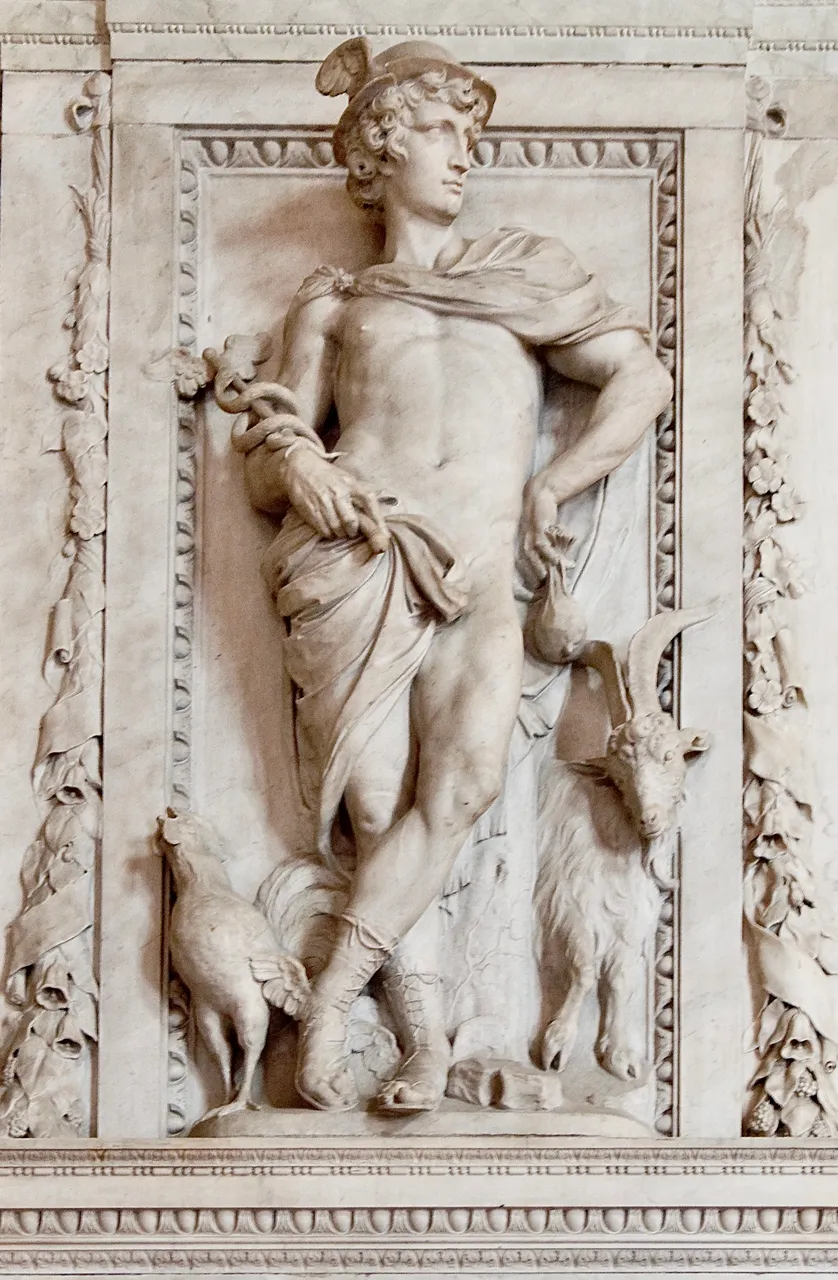Welcome to the first proper post in my mini-series "Schopenhauer and the planets". #schopenhauerssolarsystem
Like I said, I will be discussing some thoughts from Schopenhaur's book "The Wisdom of Life" from 1851.
Read the teaser here: @davidteichmann95/teaser-for-schopenhauer-and-the
So, our old friend Arthur equated every stage of life to the planets of the solar system and to the roman/greek gods after which they had been named. (Maybe a bit like Shakespeare compared the different life stages to seven acts in a drama in the famous "All the World's a Stage" monologe in As You Like It, II, VII.)
The first planet (as in the one closest to the sun) is of course Mercury. So this is where Schopenhauer starts:
| german (original) | english (own translation) |
|---|---|
| Im zehnten Lebensjahre regiert Merkur. Wie dieser bewegt der Mensch sich schnell und leicht, im engsten Kreise: er ist durch Kleinigkeiten umzustimmen; aber er lernt viel und leicht, unter der Herrschaft des Gottes der Schlauheit und Beredsamkeit. (Aphorismen zur Lebensweisheit, p. 261) | The tenth year of our life is governed by Mercury. Like him, one moves fast and easily, in a narrow circle: he is qick to change his mind; but he learns a lot and easily, under the governed by the god of wit and eloquence. |
So a ten year old child is fast and moves around alot. (At least this is how it usually is. Sadly a lot of children didn't get much exercise during lockdown and childhood obesity is at an all time high. And a lot of kids don't move alot anyway, because they spend so much time with videogames etc. I'm not knocking on videogames, most of my best childhood memories have to do with the Wii, PC, Nintendo DS and so on. But I think it would have been very sad - and unnatural - had my childhood only been about videogames. Kids in my opinion need to learn to run around more again!)

Mercury, taken by the MESSENGER probe in 2008
source: https://solarsystem.nasa.gov/resources/439/mercurys-subtle-colors/?category=planets_merc(https://creativecommons.org/licenses/by-sa/4.0/deed.en)ury
The comparision to Mercury is valid. Mercury has the shortest year: it orbits the sun in only 88 earth days! This is partly because of it's small orbit (the "narrow circle" Schopenhauer mentions, like a child only has a narrow circle to operate in, compared to the huge worlds we adults live in) but because it is so close to the sun, Mercury also has a large orbital speed: 47.36 km/s or 170496 km/h. This is the highest orbital speed among the planets in our system (earth's orbital velocityis is 29.8 km/s) So you can definatly say the planet is fast like a little child is fast! (Because Mercury doesn't spend it's time in front of a computer game.)

Mercurius, by the duth sculptor Artus Quellinus the Elder, 17th century
source: commons.wikimedia.org/wiki/File:Amsterdam_Royal_Palace_2747_(cropped).jpg license: https://creativecommons.org/licenses/by-sa/4.0/deed.en
As for Mercury the god (identified with the greek god Hermes), he is the god of lot of things. Among others, the god of eloquence, trickery and trade (which involves both eloquence and trickery as well as knowledge about math, the product itself, the market and a lot more). Children learn very fast (although some faster than others) and they can also be quite talkativ and also very tricky. So this analogy also makes perfect sense!
Also, according to legend, Mercurius/Hermes was allready very active when he was himself a child: shortly after his birth, he invented fire to better explore the cave he was in and also invented humming, which was then taken over by the birds in the forrest. These qualities of inventiveness and are also typical for children. Maybe Schopenhauer didn't know about this story, but it certainly goes nicely with the rest of what he said.
I will end the post here, although there is a lot more I could mention. I'll see you next time when we see what Arthur has to say about Venus and man in his twenties!
